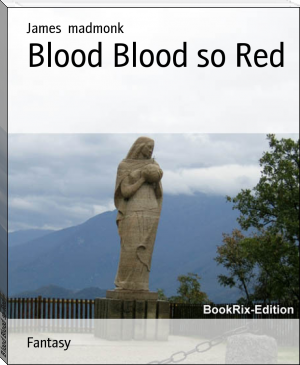Robin Hood by J. Walker McSpadden (best book series to read txt) 📗

- Author: J. Walker McSpadden
Book online «Robin Hood by J. Walker McSpadden (best book series to read txt) 📗». Author J. Walker McSpadden
“I do! I, Robin Hood of Barnesdale and Sherwood! And he who takes her from Allan-a-Dale shall buy her full dearly.”
So the twain were declared man and wife and duly blessed; and the bride was kissed by each sturdy yeoman beginning with Robin Hood.
Now I cannot end this jolly tale better than in the words of the ballad which came out of the happening and which has been sung in the villages and countryside ever since:
“And thus having end of this merry wedding, The bride lookt like a queen; And so they returned to the merry greenwood Amongst the leaves so green.”CHAPTER IX HOW THE WIDOW’S THREE SONS WERE RESCUED Now Robin Hood is to Nottingham gone, With a link a down and a down, And there he met with the proud Sheriff, Was walking along the town.
The wedding-party was a merry one that left Plympton Church, I ween; but not so merry were the ones left behind. My lord Bishop of Hereford was stuck up in the organ-loft and left, gownless and fuming. The ten liveried archers were variously disposed about the church to keep him company; two of them being locked in a tiny crypt, three in the belfry, “to ring us a wedding peal,” as Robin said; and the others under quire seats or in the vestry. The bride’s brother at her entreaty was released, but bidden not to return to the church that day or interfere with his sister again on pain of death. While the rusty old knight was forced to climb a high tree, where he sat insecurely perched among the branches, feebly cursing the party as it departed.
It was then approaching sundown, but none of the retainers or villagers dared rescue the imprisoned ones that night, for fear of Robin Hood’s men. So it was not until sunup the next day, that they were released. The Bishop and the old knight, stiff as they were, did not delay longer than for breakfast, but so great was their rage and shame—made straight to Nottingham and levied the Sheriff’s forces. The Sheriff himself was not anxious to try conclusions again with Robin in the open. Perhaps he had some slight scruples regarding his oath. But the others swore that they would go straight to the King, if he did not help them, so he was fain to consent.
A force of an hundred picked men from the Royal Foresters and swordsmen of the shire was gathered together and marched straightway into the greenwood. There, as fortune would have it, they surprised some score of outlaws hunting, and instantly gave chase. But they could not surround the outlaws, who kept well in the lead, ever and anon dropping behind a log or boulder to speed back a shaft which meant mischief to the pursuers. One shaft indeed carried off the Sheriff’s hat and caused that worthy man to fall forward upon his horse’s neck from sheer terror; while five other arrows landed in the fleshy parts of Foresters’ arms.
But the attacking party was not wholly unsuccessful. One outlaw in his flight stumbled and fell; when two others instantly stopped and helped to put him on his feet again. They were the widow’s three sons, Stout Will, and Lester, and John. The pause was an unlucky one for them, as a party of Sheriff’s men got above them and cut them off from their fellows. Swordsmen came up in the rear, and they were soon hemmed in on every side. But they gave good account of themselves, and before they had been overborne by force of numbers they had killed two and disabled three more.
The infuriated attackers were almost on the point of hewing the stout outlaws to pieces, when the Sheriff cried:
“Hold! Bind the villains! We will follow the law in this and take them to the town jail. But I promise ye the biggest public hanging that has been seen in this shire for many changes of the moon!”
So they bound the widow’s three sons and carried them back speedily to Nottingham.
Now Robin Hood had not chanced to be near the scene of the fight, or with his men; so for a time he heard nothing of the happening.
But that evening while returning to the camp he was met by the widow herself, who came weeping along the way.
“What news, what news, good woman?” said Robin hastily but courteously; for he liked her well.
“God save ye, Master Robin!” said the dame wildly. “God keep ye from the fate that has met my three sons! The Sheriff has laid hands on them and they are condemned to die.”
“Now, by our Lady! That cuts me to the heart! Stout Will, and Lester, and merry John! The earliest friends I had in the band, and still among the bravest! It must not be! When is this hanging set?”
“Middle the tinker tells me that it is for tomorrow noon,” replied the dame.
“By the truth o’ my body,” quoth Robin, “you could not tell me in better time. The memory of the old days when you freely bade me sup and dine would spur me on, even if three of the bravest lads in all the shire were not imperiled. Trust to me, good woman!”
The old widow threw herself on the ground and embraced his knees.
“‘Tis dire danger I am asking ye to face,” she said weeping; “and yet I knew your brave true heart would answer me. Heaven help ye, good Master Robin, to answer a poor widow’s prayers!”
Then Robin Hood sped straightway to the forest-camp, where he heard the details of the skirmish—how that his men had been out-numbered five to one, but got off safely, as they thought, until a count of their members had shown the loss of the widow’s three sons.
“We must rescue them, my men!” quoth Robin, “even from out the shadow of the rope itself!”
Whereupon the band set to work to devise ways and means.
Robin walked apart a little way with his head leaned thoughtfully upon his breast—for he was sore troubled—when whom should he meet but an old begging palmer, one of a devout order which made pilgrimages and wandered from place to place, supported by charity.
This old fellow walked boldly up to Robin and asked alms of him; since Robin had been wont to aid members of his order.
“What news, what news, thou foolish old man?” said Robin, “what news, I do thee pray?”
“Three squires in Nottingham town,” quoth the palmer, “are condemned to die. Belike that is greater news than the shire has had in some Sundays.”
Then Robin’s long-sought idea came to him like a flash.
“Come, change thine apparel with me, old man,” he said, “and I’ll give thee forty shillings in good silver to spend in beer or wine.”
“O, thine apparel





Comments (0)